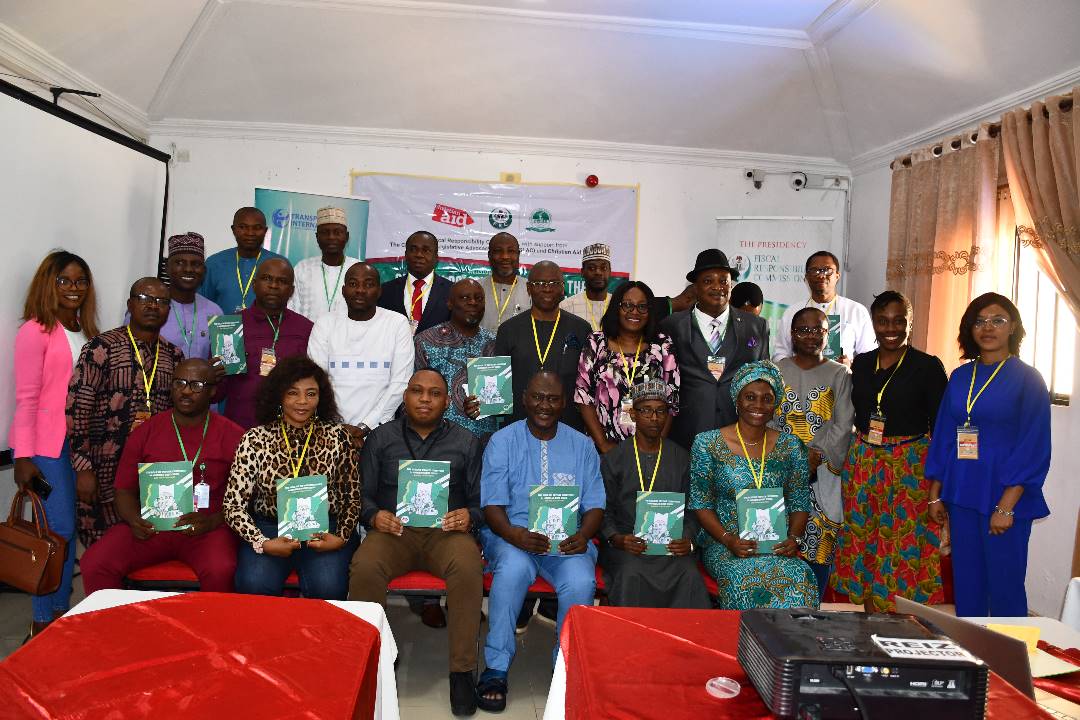The Center was invited to be part of the conversation on “Relieving Debt Burden Through Setting the Right Debt Limit organized by the Fiscal Responsibility Commission in collaboration with the Civil Society Legislative Advocacy Centre (CISLAC).
The Center considers this conversation about setting the right debt limit long overdue, especially given the burden of debt the nation faces and the resultant budget deficit yearly.
The policy roundtable warned that policymakers, especially the nation’s Debt Management Office must understand that “Gross Domestic Product is not an end in itself, but a means to an end,” hence, the current practice of setting our debt limit based on GDP puts the nation on an economic precipice. This, experts noted is because, as a mono-economy that largely depends on crude oil to earn foreign exchange, the nation has failed to diversify, with a shallow export policy.
Participants warned that the current reality, where the nation’s external debt is higher than its external reserve, and a low Revenue-to-GDP ratio, will continue to push economic handlers to more borrowing in order to service debt.
Experts at the policy dialogues also noted and cautioned that borrowing for consumption, and not for capital projects has been the bane of our borrowing policy, and urged policymakers (DMO) to be wary of the risk of falling into the imminent debt distress, and keep close tab on vulnerabilities.
While we must urgently address the disturbing debt burden and practice of basing the nation’s borrowing limit on GDP and not revenue, which is clearly deceptive, the Center is calling on government at all levels to be fiscally responsible.
One of the crucial steps to fixing the current fiscal burden is for the government and its institutions to comply with Sections 48 & 49 of the Fiscal Responsibility Act, which demands that the “government shall ensure that its fiscal and financial affairs are conducted in a transparent manner and accordingly ensure full and timely disclosure and wide publication of all transactions and decisions involving revenues and expenditures and their implications for its finances.”
The Center provides a monitoring tool through its Transparency and Integrity Index (TII) which assesses MDAs compliance to relevant laws on open governance and transparency. The budget variable of the TII for instance interrogates MDAs’ budget proposals, implementation and sustainability both at the federal and state level as required by enabling laws; and we are committed to ensuring that public institutions are more transparent and accountable in this regard.
The Center believes that entrenching the culture of transparency and accountability in the governance process remains a prerequisite for a healthy fiscal economy, and while we must regulate our borrowing going forward, policymakers must insist on borrowing for capital projects and not to fund recurrent expenditures.
The Center provides a monitoring tool through its Transparency and Integrity Index (TII) which assesses MDAs compliance to relevant laws on open governance and transparency. The budget variable of the TII assessment interrogates MDAs’ budget proposals, implementation and sustainability both at the federal and state level as required by law; and we are committed to ensuring that public institutions are more transparent and committed in this regard.

